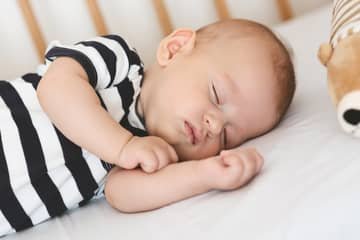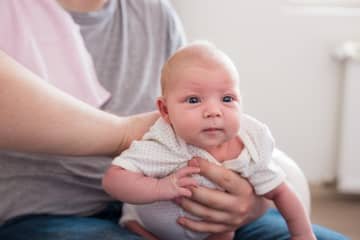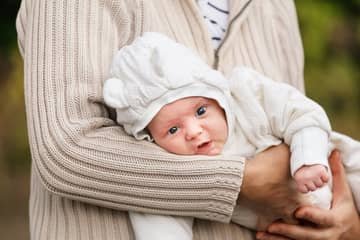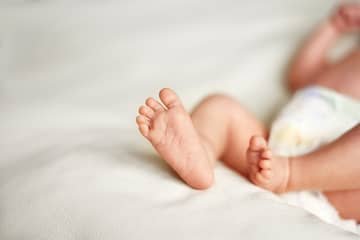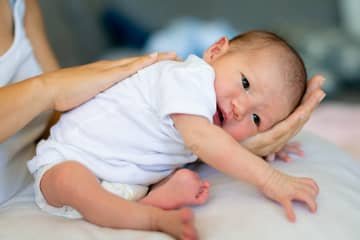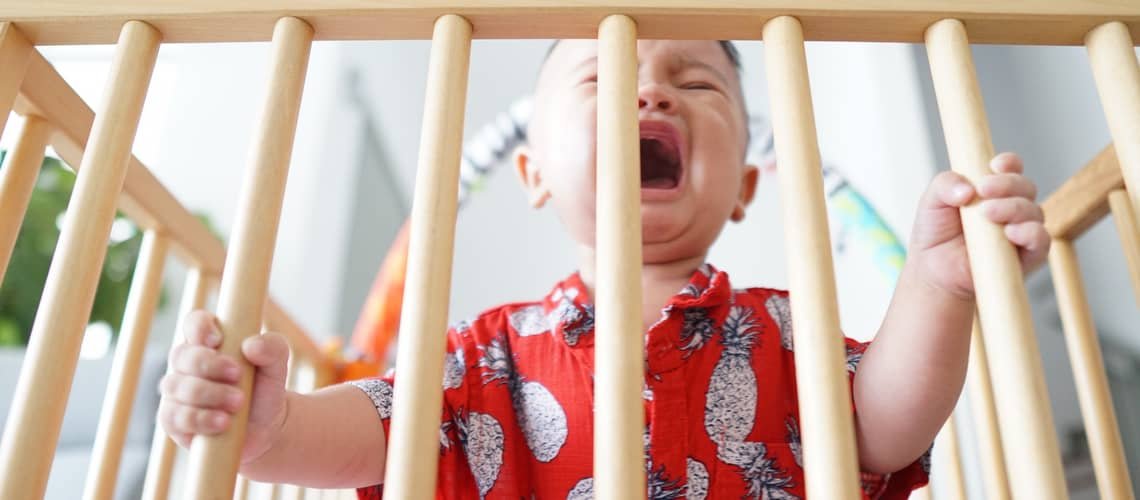
Separation anxiety in babies and older children - how does it arise, how does it manifest itself and how long does it last?
Many parents get used to their baby's excellent socialization skills, for which care from other family members or family friends is acceptable and unproblematic. Sometimes, however, there can be a breakthrough change that causes the child to require constant attention from the mother. This natural phenomenon in child development is known as separation anxiety.
What exactly is separation anxiety, what are its symptoms, when does it appear, but also what this condition causes, or the possibility of separation anxiety in older children, we will explain to you in the following paragraphs of our article.
What is separation anxiety?
These are anxiety states that appear mainly in the period between the 6th and 12th months of a baby's life, although they can also appear earlier. However, the peak of symptoms occurs during the phases of separation anxiety in the 12th, 18th and 24th months of the child's life, and thus in the later stages of his development. In general, separation anxiety manifests itself in noticeable anxiety states and fear associated with separation from the mother.
Naturally, these are irrational reactions, which are based on the gradual formation of the baby's personality in the form of establishing emotional ties with the closest people, i.e. parents, siblings, grandparents, but also other members of a narrow circle of people whom he meets most often in the first months of his life. Separation anxiety is a completely natural part of the developmental process. If the child did not go through such a period at all, there would be concerns about a developmental disorder, the cause of which may stem from the potential failure of the baby to form strong enough emotional bonds with close people.

Why does separation anxiety occur?
Separation anxiety in children can have various causes, the most common of which is a necessary separation from the person with whom the child spends most of the day. But it can also be caused by family problems in the form of arguments or parents' divorce, or an unexpected change of environment by moving.
Separation anxiety can also manifest itself in older children, especially at the time of starting kindergarten and school, while even a sudden change of school due to a change of residence causes very negative reactions in some children. Some even do not tolerate short-term separation from parents and loved ones in the form of school trips, summer camps or outdoor schools. They often cannot fully enjoy these moments with their peers precisely because of separation anxiety and come home with bad experiences.
How does separation anxiety manifest itself?
You can't prepare for the onset of separation anxiety, because it comes literally from day to day. All manifestations are logically related to the one person the child considers closest. It can even "cure" some symptoms, or mitigate. The most characteristic symptom of separation anxiety in children is hysterical crying, going beyond the limits of a loud roar, which can be muffled or silenced by a close person, usually the mother.
Such a strong reaction does not always have to be caused only by a long-term separation from a specific person, because it is enough that he is further than the child's arm's reach and there is immediately a problem in the world. It is precisely because of this separation disorder that many women do not have the opportunity to perform their normal domestic duties or fulfill their basic needs in peace and without the constant need to devote themselves to another person. In most cases, children experiencing separation anxiety only calm down in the arms of their mother or another chosen person. However, until they find themselves in her, they constantly call her, demand all her attention, cry and reach for her.
If it is separation anxiety in infants, it is also manifested by asking for the breast more often, because this act is associated with safety and peace, which is the exact opposite of the emotions that children experience with separation anxiety. As for other family members, with whom the child previously spent a lot of time, they are completely sidetracked in the eyes of the child. They can only put up with them without crying or other signs of objection for a very short time or even at all.
The child can also very easily become attached to the home environment, which means that staying away from home, e.g. with family members, on visits, in shops or on holidays, he cannot process in an adequate way. This is also a manifestation of separation anxiety.
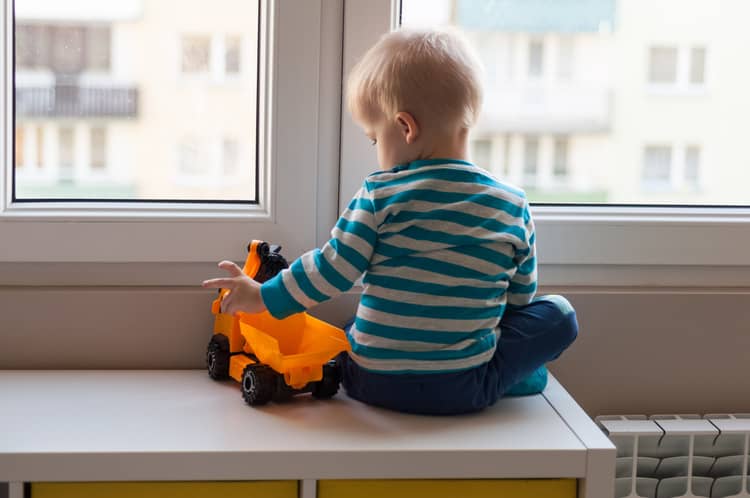
Separation anxiety and sleep
Separation anxiety has a very large effect on the child's psyche, which does not exclude manifestations that are reflected not only in their sleep regime, but also in the course of sleep itself. Children with separation anxiety usually have difficulty falling asleep or suffer from interrupted sleep, while frequent awakenings may be due to bad dreams, nightmares or fear of the dark. Everything is connected with everything, and therefore it is not at all surprising if bad dreams in the case of some children lead to urination.
As a result of nightmares, children often tend to sleep in the company of their mother or a close person, which deepens their attachment to this particular person even more. The intervals of daily sleep are affected, which are shortened or the child completely eliminates them from his daily schedule.
How long does separation anxiety last?
Separation anxiety usually lasts 1 to 2 weeks. As quickly as it came, it can spontaneously go away depending on the particular baby, while it is important that it recedes before three months. Failure to manage this period can create a pathological version of separation anxiety in children, which has a great impact on the child's inclusion in the peer group, as well as his education, which is directly related to the socialization skills he possesses.
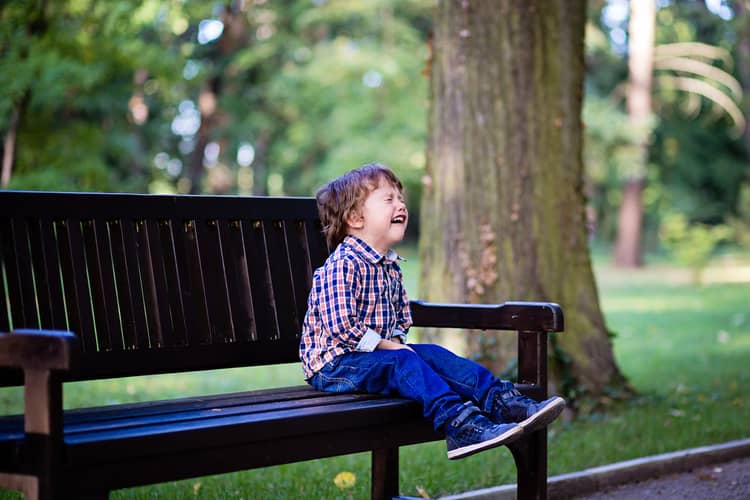
Tips for coping with separation anxiety in children
Manifestations of separation anxiety, namely hysterical crying, should never be ignored, because your approach to this problem can have a very significant impact on your child's self-esteem in the future, as well as his ability to form relationships with other people. Therefore, screaming and any other aggressive reaction to a child's hysterical crying fit should definitely be excluded. You will achieve much more positive results with a slow and gentle approach, and in this case, the key is to have a good dose of patience and keep a cool head.
Separation anxiety in a baby, or in infants, it can be alleviated by placing the child in a high chair or in an egg, in which it is necessary to carry it everywhere with you. So if you need to go to the toilet, place the baby in the egg directly in front of the half-open door so that he can see you. The same applies if you cook or iron. However, a daily intense moment of playing and cuddling with the baby can also help, thanks to which the baby could potentially stay in the crib for at least a few minutes without your presence. These steps lead the child to proper emotional development.
Over time, the child will realize that you will always return to him, even if he is not around for a while. A simple game of hide and seek can help the child to reinforce this fact. Just hide behind a larger piece of furniture while playing, saying, "Where's mommy?" Here's mommy!” In this way, the child will understand that even if you are not in his field of vision, you are still close to him and you will always return to him.
Accustoming the child to a longer period of separation
However, in the event that you have to take care of something important, but you cannot take the child with you for some reason, always make sure that he is fed and slept before you leave, which will ensure that he is in a good mood, but also reduce the likelihood of significant manifestations of separation anxiety. You should not prolong leaving the house and under no circumstances should you say goodbye to your child with regret recognizable in your voice and eyes, because this kind of behavior on your part reinforces the child that his anxiety is justified. In essence, this is how you show him that you feel the same anxiety, which will make him nervous and scared even more.
The opposite procedure is also incorrect, i.e. sudden separation by running away. This kind of separation can break the trust you have built up with your child. That is why it is good if you create a certain farewell ritual that reinforces the child that you will definitely return after a certain time. It is always better if you separate from the baby in a home environment, while in the event that the circumstances do not allow you this alternative and your child will be looked after in a foreign environment, it is advisable that he be familiar with this place in advance. It is ideal if your child is watched by someone they already know and have at least some kind of relationship with this person.
The use of babysitting services is also fine, but in this case the child should preferably stay in his home environment. In connection with the place where the child will be cared for and the person entrusted with short-term care, it is ideal if at least one of these factors is known to the child. It is very good if the child has a favorite toy that gives him a sense of security. This toy at the time of separation from you plays a key role, because despite the fact that your child cannot be in your arms, the proximity of a favorite toy can be the second most secure thing in his life at the time of separation anxiety.
Separation anxiety in a 2-year-old child, or a toddler or a 5-year-old child in preschool age requires more comprehensive verbal communication in case of necessary separation, through which the child is assured that you will return. For older children, who already have a certain concept of time, it is very important to adhere to the promised pick-up time from school, club or guarding. This is the only way you will be able to strengthen children's sense of safety and security in an unfamiliar environment, while also increasing their self-confidence. Praise for a successfully managed separation period is also a suitable means.
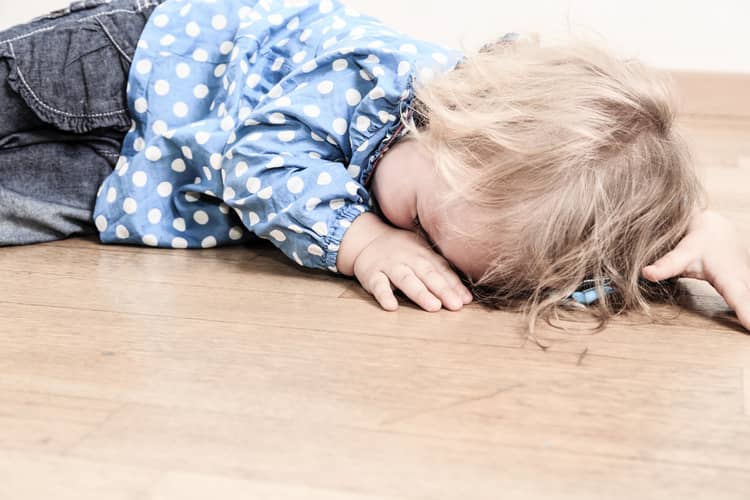
Separation anxiety in children - experience
According to several discussions on the Internet, it is clear that some mothers do not even know that they are in this period of their child's development, while this is also completely normal. The most important thing is that you catch sudden changes in your child's behavior. Some discussants confirmed that it is very important for mothers to pay more attention to physical manifestations of love and closeness during separation anxiety, which mainly includes cooing, playing with the baby in their arms, etc. Separation anxiety will never be "cured" by forced distance from the baby. On the one hand, it harms the development of the child, on the other hand Apgar score of the newbon this approach has negative effects on the psychological well-being of the mother herself.
In terms of the time horizon, several discussing mothers confirmed that all cases are different, which is mainly caused by the individuality of the development process of each little person. While for some the period of separation anxiety lasted until the 18th month of the child's life, for others at that time the fear of separation was just beginning.
In any case, this period will pass and the child will learn to be independent, until it will gradually reach a stage when, on the contrary, the mother will miss closeness. For this reason, several discussants recommended that mothers enjoy this period to the fullest, because this phase of the child's life will come to an end, and the mother will only have memories of the time when her baby was on her and the feelings of safety, security and comfort that she raised the child, literally addicted.
The most frequent questions - FAQ
Are you interested in more information related to separation anxiety in children? Can you think of other questions that were not answered in the text of the article or in the question and answer section? Do not hesitate to put them in the comments below the article.
Is separation anxiety in children a sign that there has been a mistake in education?
Did I cause my child's separation anxiety by spoiling him?
Is there a procedure for getting a baby used to separation?
How to get a child used to another person when he is going through separation anxiety?
Is it possible to prepare a child for separation even before entering an educational institution?
Pridať komentár

